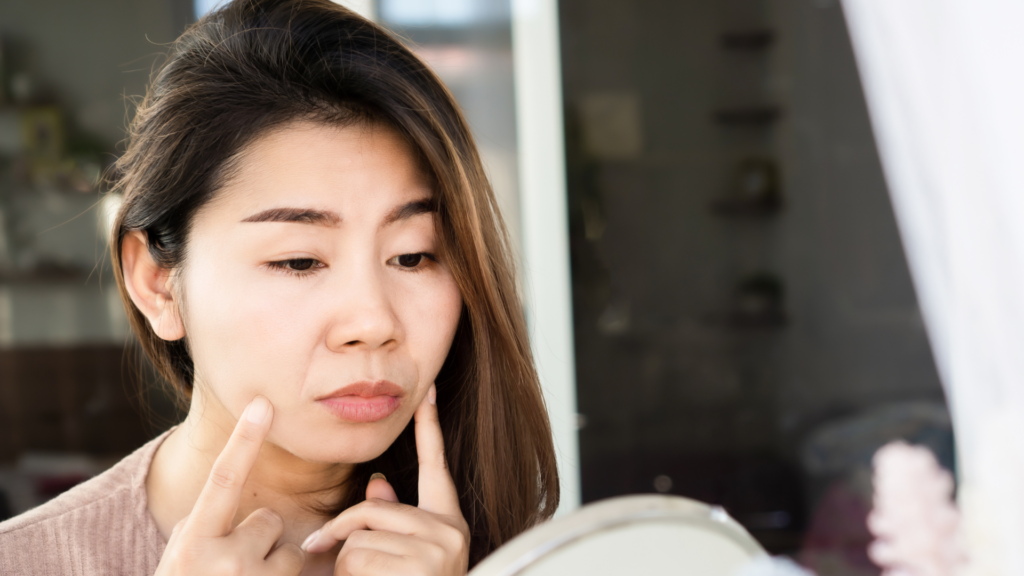
Beauty and skincare are important aspects of self-care and can help women of all ages maintain healthy, radiant skin. However, the specific needs and routines can vary depending on age, skin type, and individual preferences. At your young age, you may be tempted to use too many products, which can be harsh on your skin. Stick to a basic routine with a gentle cleanser, moisturizer, and sunscreen.
In your 40s, hormonal changes occur and signs of aging like crow’s feet and forehead creases start to appear, so having good anti-aging products in the 30s itself helps in the 40s. Ensure healthy and radiant skin for years to come by following simple beauty and skincare tips according to your age and achieve flawless and nourished skin that you always aspired for by understanding simple details about skincare :
- Daily Cleansing: Cleansing your face is crucial for removing makeup, dirt, and pollutants. Use a gentle, pH-balanced cleanser suitable for your skin type (dry, oily, combination, sensitive) and cleanse your face twice a day. This is important for women of all age groups, and it is good to establish this routine in your 20s. Late nights and busy schedules can lead to skipping proper cleansing. Make sure to remove makeup and cleanse your face before bed to prevent breakouts.
- Sun Protection: Protecting your skin from UV rays is vital for preventing premature aging and reducing the risk of skin cancer. Use a broad-spectrum sunscreen with at least SPF 30 every morning, even on cloudy days. If you play outdoor sports or go out in harsh sun, then try covering your skin with a scarf and wearing sunglasses. You must also use a higher SPF sunscreen like SPF50 in that case. UV damage can lead to premature aging and increase the risk of skin cancer. Sun protection is an extremely important step to start following in your 20s to avoid blemishes and damaged skin later in life.
- Hydration: Hydrated skin looks more youthful. Use a moisturizer that suits your skin type to keep it supple and plump. Consider using a separate night cream for added hydration while you sleep. Choose a moisturizer according to your skin type and age. Dry skin needs a heavier moisturizer than oily skin. You may also choose a gel-based moisturizer for oily skin. Focus on deep hydration to combat loss of elasticity in your 50s.
Stay hydrated by drinking enough water and having water-rich foods throughout the day. Proper hydration can help maintain skin elasticity and a healthy complexion. This is extremely important all year round especially summer.
- Antioxidants and serums: Antioxidant-rich products can help fight free radicals, which can damage your skin and lead to premature aging. Look for products containing vitamins C and E, green tea, or coenzyme Q10. Serums are concentrated products that can target specific skin concerns, such as fine lines, uneven skin tone, or acne. Incorporate a serum that addresses your individual needs into your skincare routine.
As you move from 20s to 30s adding these products is important for skincare. You may include hyaluronic acid, antioxidant-rich moisturizers or serums, and anti-aging products as they will tighten and brighten your skin and give it a glowy effect similar to that of your 20s.

Neglecting good skincare in the 30s can cost you dearly in the 40s. You can start using serums with peptides and growth factors to promote collagen production in your 40s and continue with them.
- Eye Cream: If you are concerned about wrinkles, puffiness, or dark circles around your eyes, consider using an eye cream with ingredients like hyaluronic acid, peptides, or retinol. Start applying this in your 30s to prevent early signs of aging.
- Exfoliation: Exfoliating your skin 1-2 times a week can help remove dead skin cells and promote cell turnover. Choose a gentle exfoliator, especially if you have sensitive skin. In your 40s you may consider using products with AHA(alpha hydroxy acids) or BHA(beta hydroxy acids) to improve skin texture as they help to remove dead skin cells from the top layer of skin making your skin feel fresh and healthy.
- Balanced Diet: Eat a balanced diet rich in fruits, vegetables, lean proteins, and healthy fats. Incorporate foods with nutrients like vitamin C, vitamin E, and omega-3 fatty acids to support skin health throughout your life.
- Sleep: Getting enough quality sleep is essential for skin regeneration and overall well-being. Aim for 7-9 hours of sleep each night and follow a good night regime of both skincare and relaxation to promote healing skincare.
- Stress Management: High-stress levels can negatively impact your skin. If you are happy and relaxed, it reflects in your skin. Practice stress-reduction techniques like meditation, yoga, or deep breathing exercises.
- Avoid Smoking and Limit Alcohol: Smoking can accelerate skin aging, while excessive alcohol consumption can dehydrate the skin. Try to quit smoking and limit alcohol intake for better skin health.
- Personal hygiene: Follow basic personal hygiene practices like handwashing and regular baths to help control germs. We touch our faces with our hands unknowingly so many times. Dirty hands will transfer germs to your face and cause skin problems.
- Be Consistent: Consistency is key to achieving and maintaining healthy skin. Stick to your skincare routine and give products time to work.
Remember, patch testing new products is important to avoid adverse reactions, and always use products that are suitable for your skin type. In case of any rash, do not use that product on the face. Also, at any point in time if you see some adverse effect on skin with some products, discontinue the product immediately. Do not neglect your neck and upper part of your chest when applying skincare products and sunscreen. These areas show signs of aging too.
As you age, your skin’s needs may change. Adjust your skincare routine to address specific concerns, such as wrinkles, age spots, or loss of elasticity. You may visit a dermatologist or aesthetician for professional skin assessments and treatments, such as chemical peels, microdermabrasion, or laser therapy.
